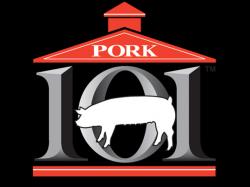Insight On The Pork Industry At AMSA's Pork 101
July 10, 2014 | 2 min to read

Champaign, IL – Are you up-to-date on quality and consistency issues in the pork industry? If you answered “no” or “I am not sure” to that question then you need to attend the next PORK 101 to be held August 12-14 at the University of Nebraska in Lincoln, NE. PORK 101 is hosted by AMSA in cooperation with the National Pork Board and is sponsored by Elanco Animal Health.
To help minimize travel costs, the three day program will begin at 10:00 AM on August 12th and conclude at 3:00 pm on August 14th. For a course outline and to register for PORK 101 please visit: http://www.pork101.org.
PORK 101 is co-sponsored by the American Society of Animal Science (ASAS), North American Meat Association (NAMA) and the Southwest Meat Association (SMA). Registration for AMSA, ASAS, NAMA and SMA members is $800. Non-member registration is $950. Registration for this course ends July 25th, group discounts are available to companies or organizations sending more than one person.
PORK 101 attendees will learn about the value differences in swine, pork carcasses, pork primals and processed pork products from meat science faculty and AMSA members at the University of Nebraska.
The program features:
• Live Hog Grading and Evaluation
• Lean Value Pricing
• Quality Management at Slaughter
• Slaughter Floor HACCP
• Measuring Carcass Quality and Composition
• Process Control Testing
• Fresh Sausage Production
• Pork Carcass Fabrication
• Value Addition
• Consistency Improvement
• Enhanced Pork Production
• Curing Production
• Retail and Consumer Issues
A special thank you goes out to Elanco Animal Health, a company dedicated to enhancing animal health through science and innovation. For more information or questions regarding PORK 101 please visit: www.pork101.org or contact Deidrea Mabry 1-800-517-AMSA ext. 12.
AMSA fosters community and professional development among individuals who create and apply science to efficiently provide safe and high quality meat (defined as red meat (beef, pork and lamb), poultry, fish/seafood and meat from other managed species).
Source: American Meat Science Association
